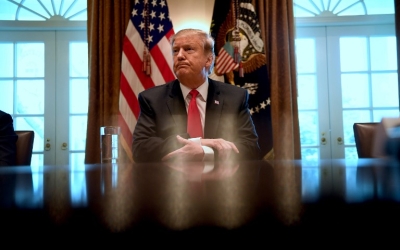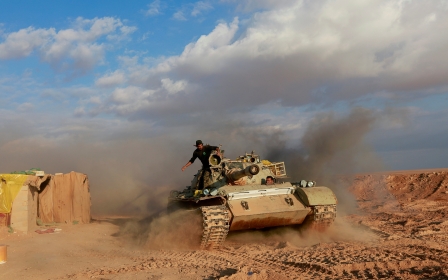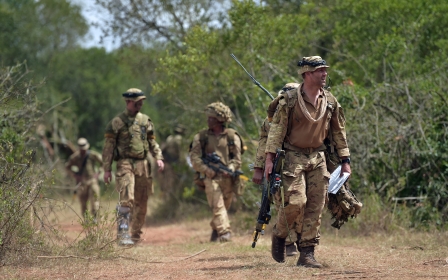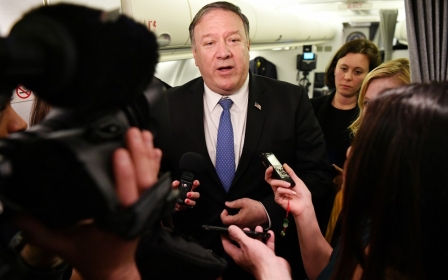Unknown group claims Baghdad rocket attack as retaliation for Trump soldier pardon
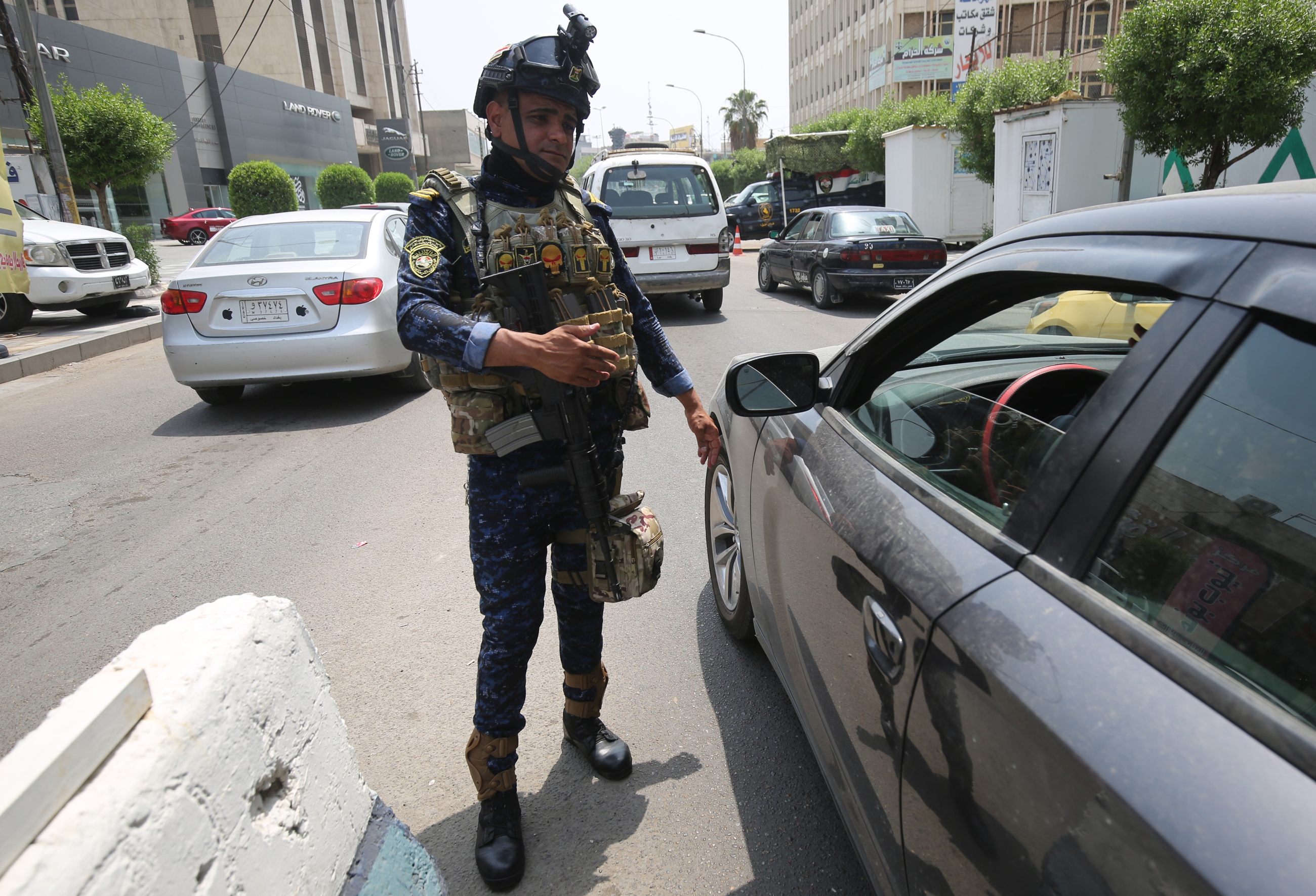
A previously unknown armed group has claimed responsibility for a Sunday rocket attack on Baghdad's Green Zone, claiming the attack was retaliation for US President Donald Trump pardoning a soldier over the 2009 killing of an Iraqi detainee.
In a statement released to a number of Iraqi news outlets, a group calling itself the Operations of Martyr Ali Mansour said it had fired the Katyusha rocket into the fortified area, which houses the US embassy.
They cited as a cause Trump's pardoning of Michael Behenna, a former United States first lieutenant who was convicted of murdering an Iraqi prisoner, Ali Mansour Mohammad al-Jabouri, in 2008.
The group denied that it had a connection to Iran or Iran-backed groups in Iraq, while acknowledging that such a connection had been suggested.
"Our appearance is because of Trump's decision, and we have no connection to any internal, external or supporting side," said the group, according to Iraqi newspaper Al-Mada.
New MEE newsletter: Jerusalem Dispatch
Sign up to get the latest insights and analysis on Israel-Palestine, alongside Turkey Unpacked and other MEE newsletters
The group claimed to have carried out several other operations in the past, including targeting US forces with Katyusha rockets at Camp Taji, north of Baghdad, on 30 April.
"The attacks will continue as long as Michael Behenna is out of jail," the spokesperson added.
War crimes 'endorsement'
Trump pardoned Behenna on 7 May, after he had served five years of a 25-year jail sentence for unpremeditated murder in a combat zone.
The move was condemned as an "endorsement of war crimes" by the American Civil Liberties Union (ACLU).
“The military appeals court found Behenna disobeyed orders, became the aggressor against his prisoner, and had no justification for killing a naked, unarmed Iraqi man in the desert, away from an actual battlefield," Hina Shamsi, the ACLU’s national security project director, said in a statement.
"Trump, as commander in chief, and top military leaders should prevent war crimes, not endorse or excuse them."
The new armed group's claim of responsibility on Tuesday has been greeted with scepticism in some quarters, particularly as it comes at a period of increased tensions between the US and Iran.
Initial suspicion for the rocket attack was directed towards the various Iran-backed armed groups in Iraq, such as Asaib Ahl al-Haq (AAH) and Kataib Hezbollah, although they have been quick to disavow responsibility and issue condemnations.
Naeem al-Aboudi, a spokesperson for AAH, even tweeted that it was "very possible" that the Islamic State (IS) group was behind the attack.
Last Wednesday, the US announced it was withdrawing all non-essential staff from the capital Baghdad and the Kurdish capital Erbil following an unspecified threat from Iran-linked forces.
The Daily Beast quoted a senior official in Iraq's elite Counter Terrorism Services (CTS) saying that Kataib Hezbollah, an Iran-backed group designated a terrorist organisation by the US, were responsible for the rocket attack.
However, the CTS on Tuesday said the statement given to the Daily Beast was "untrue" and disavowed any information not given through its official channels.
Middle East Eye has contacted an Iraqi Ministry of Defence spokesperson for comment, but has not received a response at time of publication.
David M Witty, an analyst and former US Army Special Forces colonel, said that the appearance of a new armed group in Iraq was unusual.
"It is a strange time for a new group to emerge claiming responsibility for the attack given US-Iranian tensions, comments by the Popular Mobilisation Units (PMUs) about possibly targeting US forces in Iraq and the Islamic State's ongoing attempts to reconstitute itself," he told MEE, using the umbrella term for volunteer armed groups in Iraq, many of which are backed by Iran.
"But PMUs did go out of their way to distance themselves from this attack. Maybe it was a test balloon of some sort to see the US reaction," he added. "And after all, it was just one missile. Nothing like the hundreds of Iraqi militias launched on the Green Zone during the Iraq war."
Middle East Eye delivers independent and unrivalled coverage and analysis of the Middle East, North Africa and beyond. To learn more about republishing this content and the associated fees, please fill out this form. More about MEE can be found here.


